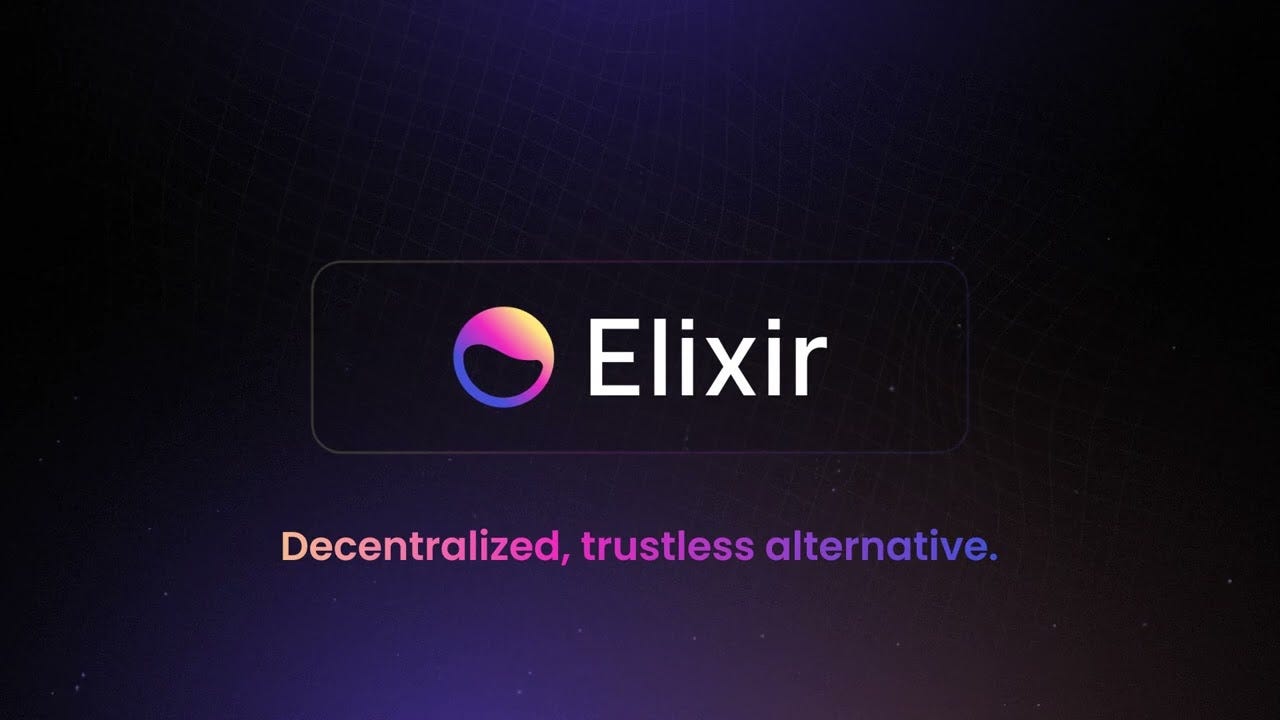Research Summary
The report discusses Elixir, a modular DPoS Network designed to power liquidity across order-book exchanges. It highlights the advantages of order-book exchanges over traditional AMM curves, the potential for regular users to participate in Elixir, and the future of perpetual contract exchanges.
Key Takeaways
Elixir’s Solution to Order-Book Exchanges
- Addressing Liquidity Issues: Elixir aims to solve the problem of lack of a trustless way for retail participants to supply liquidity in order-book exchanges. It allows anyone to supply liquidity to order-books, reducing reliance on large centralized market makers and their significant fees.
- Seamless User Interaction: Users can interact with Elixir seamlessly, retaining control of their funds, viewing how their liquidity is provisioned, claiming rewards in real-time, and withdrawing funds back to their account whenever they choose.
Order-Book Exchanges: The Future of Crypto Markets
- Efficiency and Profitability: Order-book style exchanges offer the most efficient trading environment as they allow capital to be turned over multiple times a day. This efficiency is driven by the ability to leverage trades, which is more lucrative than simple swaps on traditional AMMs.
- Addressing MEV and Transaction Costs: The move towards order-books also addresses issues like MEV and transaction costs associated with on-chain broadcasts. Off-chain order-books, while more complex, avoid these problems and allow tighter market maker quotes.
Participation and Risks in Elixir
- Multiple Participation Methods: Users can participate in Elixir by supplying liquidity to native integrations on various exchanges, through the Apothecary points program, or by supplying ETH to obtain elxETH, Elixir’s cross-chain LP token.
- Risk Management: Elixir has built-in risk mechanisms to manage liquidity, such as stopping bids if inventory exceeds two-thirds and aggressively offloading inventory on the other side. Volatility buffers ensure optimal bid-ask spreads.
Elixir’s Approach to Balancing Liquidity Safety and Incentives
- Calculated Spreads and Layered Liquidity: Elixir calculates the theoretical optimal bid-ask spread based on market volatility and liquidity. It also layers the liquidity across multiple order levels, preventing cascading liquidations and ensuring deeper liquidity on the books.
- Competitive Returns for LPs: The strategies employed by Elixir generally lead to competitive returns for LPs, including earning fees without excessive risk, thanks to the calculated spreads and layered liquidity approach.
Perpetual Contract Exchanges: Pros and Cons
- Execution Speed and Liquidity: The execution speed of order-book based perpetual exchanges has become quite solid. However, many large traders still prefer centralized exchanges due to the higher liquidity and the trust that these exchanges won’t manipulate liquidation levels.
- Convenience of Centralized Exchanges: Centralized exchanges also offer convenience as they support a wide range of assets and provide a seamless user experience, unlike decentralized platforms where users have to manage their own security and transaction confirmations.
Actionable Insights
- Exploring Elixir’s Liquidity Provision: Given Elixir’s approach to addressing liquidity issues in order-book exchanges, it may be worth exploring how this platform can be utilized for liquidity provision.
- Understanding the Shift to Order-Book Exchanges: With the industry rapidly shifting towards order-book based exchanges, it’s crucial to understand this trend and its implications for the future of crypto markets.
- Assessing Participation Opportunities in Elixir: Elixir offers multiple ways for users to participate. Assessing these opportunities and understanding the associated risks can provide insights into potential benefits.




